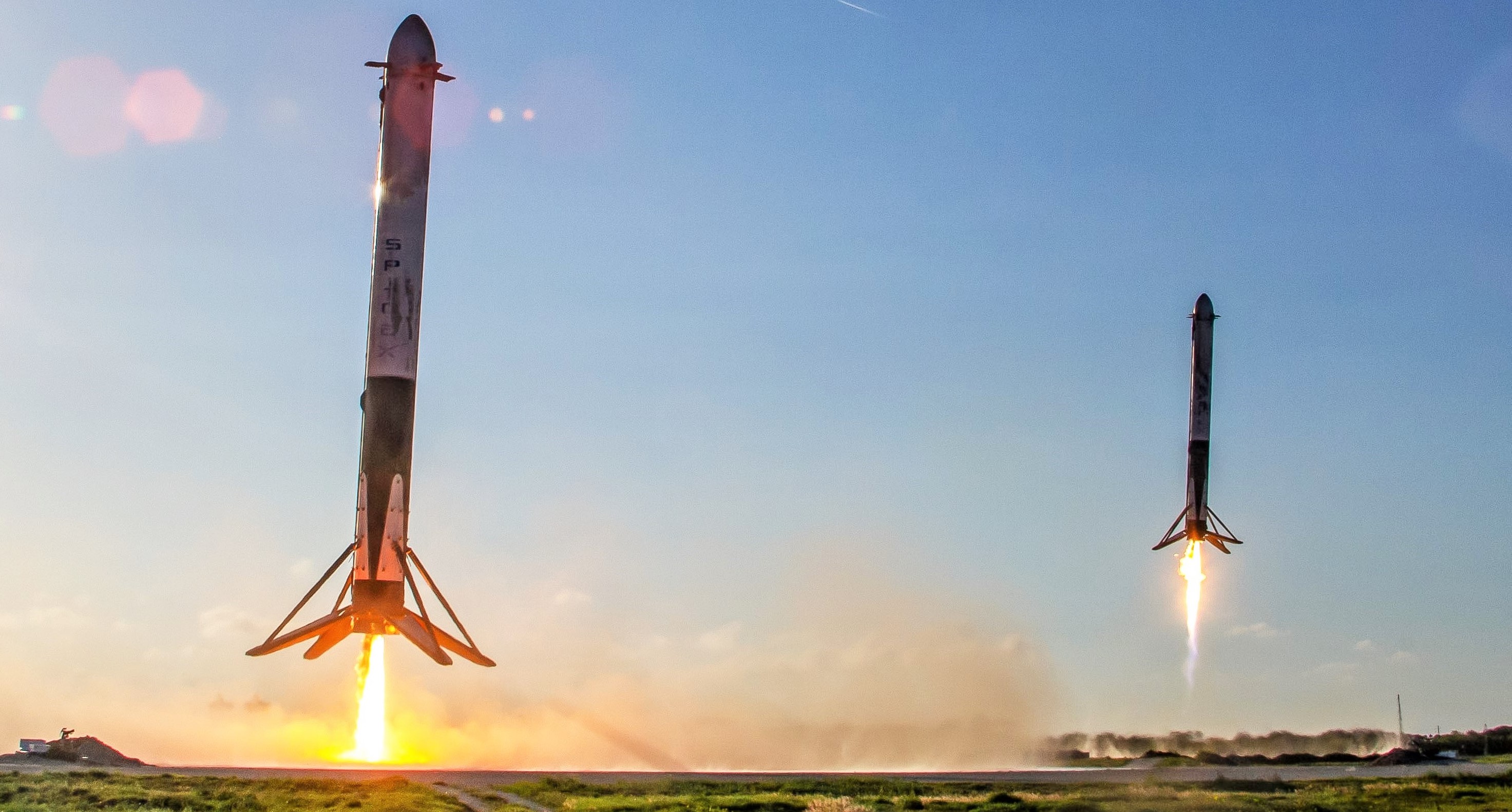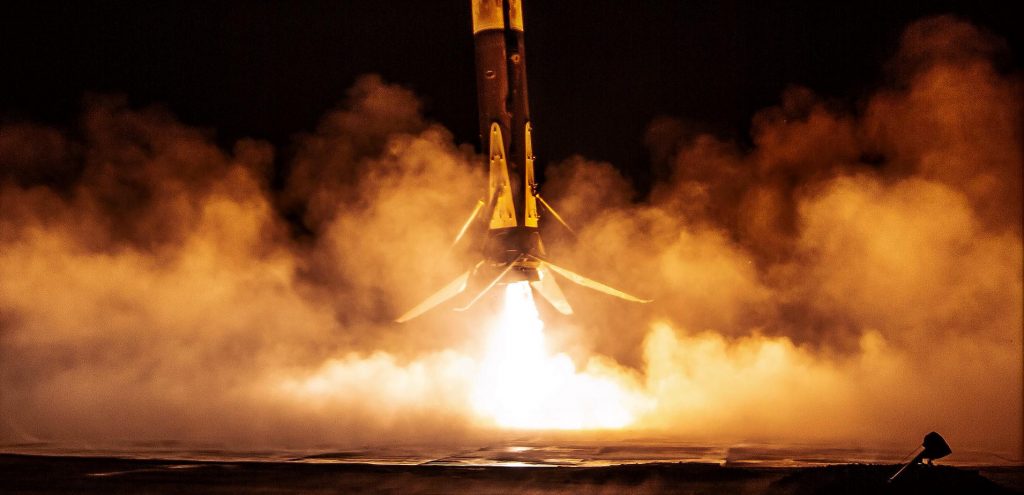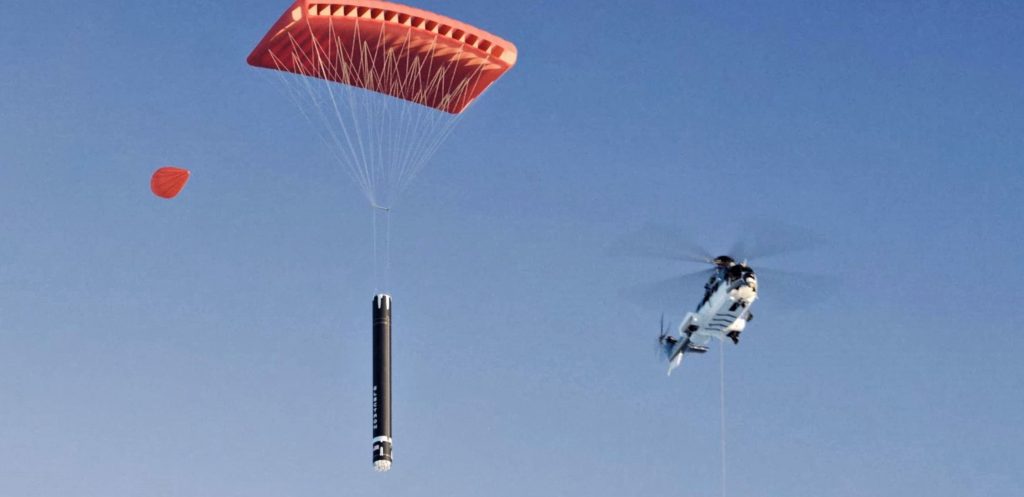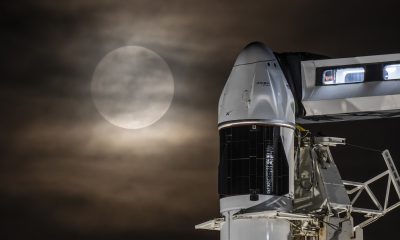

News
SpaceX competitor ULA CEO still questions the economic value of reusable rockets
SpaceX has made a name for itself for being one of the only private space companies today to deploy a fleet of rockets that are capable of being reused for multiple missions. Elon Musk has sworn by the economics of rocket reusability, and this is shown by SpaceX’s launch prices compared to competitors that use expendable rockets. Yet for Tory Bruno, the CEO of ULA, the economic sense behind reusable rockets like the Falcon 9 is still questionable.
Interestingly enough, the ULA is poised to use Blue Origin’s BE-4 engines for the first stage of its expendable Vulcan rocket. Like SpaceX, Blue Origin’s vision of spaceflight involves rockets that can be reused multiple times before they are retired. ULA, for its part, notes that it may decide to recover and reuse the Vulcan’s BE-4 engines down the road, using a system that disengages the units after launch and having them fall back through the atmosphere while being protected by an inflatable hypersonic shield.
A helicopter would then be positioned to catch the engine section midair while it makes its descent. ULA has come up with a noteworthy name for this system: the Sensible Modular Autonomous Return Technology, or SMART approach. In a statement to Aviation Week, ULA CEO Tory Bruno explained the strategy behind the company’s SMART strategy.

“It does not impact, in any significant way, the overall performance of the launch vehicle because you don’t have to save fuel to fly home with. You still get to burn up all your fuel, separate your engine, which is the most expensive piece, and recover it,” Bruno said.
Elaborating further, the ULA CEO mentioned that ultimately, he believes that the economics of reusable rockets is still up for question. Bruno argued that it is still difficult to ensure that using reusable rockets instead of expendable machines actually saves money.
“We have not really changed our assessment over the last couple of years because we have yet to see the other forms of reusability—flyback or propulsive return to Earth—demonstrate economic sustainability on a recurring basis. It’s pretty darn hard to make that actually save money… We’ve seen nothing yet that changes our analysis on that,” the ULA CEO said.
The ULA CEO’s points about the possible lack of savings on reusable rockets put him in stark contrast with other noteworthy leaders in the space industry. Apart from SpaceX CEO Elon Musk, fellow billionaire Jeff Bezos of Blue Origin is also intently focused on using reusable rockets. Even Rocket Lab CEO Peter Beck, whose company designs and launches small rockets, has embraced the idea of reusing previously-flown boosters.

In a statement in August 2019, for example, Beck noted that he actually had to “eat his hat” when it came to reusing his company’s rockets. “For a long time, I said we weren’t going to do reusability. This is one of those occasions where I have to eat my hat,” the Rocket Lab CEO said.
That being said, the fact that the ULA CEO is considering reusing the Vulcan’s BE-4 engines may be considered as a small win for reusable rockets. Perhaps in the near future, Bruno would see exactly why SpaceX has grown so much over the years, and why the company is practically launching its Starlink satellite internet system at a minimal cost.
“We view (rocket reuse) as sort of a journey. We’re going to start with the engines because we’re pretty sure we can save money with that and pass those savings on right away. As we learn more by doing, we’ll continue to assess other valuable parts of the rocket, and we may discover that we can do that there as well.
“There is one funny thing about reusability. As you make your rocket less expensive, and you make parts of your rocket less expensive, it’s harder to close a business case on reuse because the thing you’re recovering isn’t as valuable. There’s a balance there,” Bruno said.
Elon Musk
Tesla reveals it is using AI to make factories more sustainable: here’s how
Tesla is using AI in its Gigafactory Nevada factory to improve HVAC efficiency.

Tesla has revealed in its Extended Impact Report for 2024 that it is using Artificial Intelligence (AI) to enable its factories to be more sustainable. One example it used was its achievement of managing “the majority of the HVAC infrastructure at Gigafactory Nevada is now AI-controlled” last year.
In a commitment to becoming more efficient and making its production as eco-friendly as possible, Tesla has been working for years to find solutions to reduce energy consumption in its factories.
For example, in 2023, Tesla implemented optimization controls in the plastics and paint shops located at Gigafactory Texas, which increased the efficiency of natural gas consumption. Tesla plans to phase out natural gas use across its factories eventually, but for now, it prioritizes work to reduce emissions from that energy source specifically.
It also uses Hygrometric Control Logic for Air Handling Units at Giafactory Berlin, resulting in 17,000 MWh in energy savings each year. At Gigafactory Nevada, Tesla saves 9.5 GWh of energy through the use of N-Methylpyrrolidone refineries when extracting critical raw material.
Perhaps the most interesting way Tesla is conserving energy is through the use of AI at Gigafactory Nevada, as it describes its use of AI to reduce energy demand:
“In 2023, AI Control for HVAC was expanded from Nevada and Texas to now include our Berlin-Brandenburg and Fremont factories. AI Control policy enables HVAC systems within each factory to work together to process sensor data, model factory dynamics, and apply control actions that safely minimize the energy required to support production. In 2024, this system achieved two milestones: the majority of HVAC infrastructure at Gigafactory Nevada is now AI-controlled, reducing fan and thermal energy demand; and the AI algorithm was extended to manage entire chiller plants, creating a closed-loop control system that optimizes both chilled water consumption and the energy required for its generation, all while maintaining factory conditions.”
Tesla utilizes AI Control “primarily on systems that heat or cool critical factory production spaces and equipment.” AI Control communicates with the preexisting standard control logic of each system, and any issues can be resolved by quickly reverting back to standard control. There were none in 2024.
Tesla says that it is utilizing AI to drive impact at its factories, and it has proven to be a valuable tool in reducing energy consumption at one of its facilities.
Elon Musk
Tesla analysts believe Musk and Trump feud will pass
Tesla CEO Elon Musk and U.S. President Donald Trump’s feud shall pass, several bulls say.

Tesla analysts are breaking down the current feud between CEO Elon Musk and U.S. President Donald Trump, as the two continue to disagree on the “Big Beautiful Bill” and its impact on the country’s national debt.
Musk, who headed the Department of Government Efficiency (DOGE) under the Trump Administration, left his post in May. Soon thereafter, he and President Trump entered a very public and verbal disagreement, where things turned sour. They reconciled to an extent, and things seemed to be in the past.
However, the second disagreement between the two started on Monday, as Musk continued to push back on the “Big Beautiful Bill” that the Trump administration is attempting to sign into law. It would, by Musk’s estimation, increase spending and reverse the work DOGE did to trim the deficit.
Every member of Congress who campaigned on reducing government spending and then immediately voted for the biggest debt increase in history should hang their head in shame!
And they will lose their primary next year if it is the last thing I do on this Earth.
— Elon Musk (@elonmusk) June 30, 2025
President Trump has hinted that DOGE could be “the monster” that “eats Elon,” threatening to end the subsidies that SpaceX and Tesla receive. Musk has not been opposed to ending government subsidies for companies, including his own, as long as they are all abolished.
How Tesla could benefit from the ‘Big Beautiful Bill’ that axes EV subsidies
Despite this contentious back-and-forth between the two, analysts are sharing their opinions now, and a few of the more bullish Tesla observers are convinced that this feud will pass, Trump and Musk will resolve their differences as they have before, and things will return to normal.
ARK Invest’s Cathie Wood said this morning that the feud between Musk and Trump is another example of “this too shall pass:”
BREAKING: CATHIE WOOD SAYS — ELON AND TRUMP FEUD “WILL PASS” 👀 $TSLA
She remains bullish ! pic.twitter.com/w5rW2gfCkx
— TheSonOfWalkley (@TheSonOfWalkley) July 1, 2025
Additionally, Wedbush’s Dan Ives, in a note to investors this morning, said that the situation “will settle:”
“We believe this situation will settle and at the end of the day Musk needs Trump and Trump needs Musk given the AI Arms Race going on between the US and China. The jabs between Musk and Trump will continue as the Budget rolls through Congress but Tesla investors want Musk to focus on driving Tesla and stop this political angle…which has turned into a life of its own in a roller coaster ride since the November elections.”
Tesla shares are down about 5 percent at 3:10 p.m. on the East Coast.
Elon Musk
Tesla scrambles after Musk sidekick exit, CEO takes over sales
Tesla CEO Elon Musk is reportedly overseeing sales in North America and Europe, Bloomberg reports.

Tesla scrambled its executives around following the exit of CEO Elon Musk’s sidekick last week, Omead Afshar. Afshar was relieved of his duties as Head of Sales for both North America and Europe.
Bloomberg is reporting that Musk is now overseeing both regions for sales, according to sources familiar with the matter. Afshar left the company last week, likely due to slow sales in both markets, ending a seven-year term with the electric automaker.
Tesla’s Omead Afshar, known as Elon Musk’s right-hand man, leaves company: reports
Afshar was promoted to the role late last year as Musk was becoming more involved in the road to the White House with President Donald Trump.
Afshar, whose LinkedIn account stated he was working within the “Office of the CEO,” was known as Musk’s right-hand man for years.
Additionally, Tom Zhu, currently the Senior Vice President of Automotive at Tesla, will oversee sales in Asia, according to the report.
It is a scramble by Tesla to get the company’s proven executives over the pain points the automaker has found halfway through the year. Sales are looking to be close to the 1.8 million vehicles the company delivered in both of the past two years.
Tesla is pivoting to pay more attention to the struggling automotive sales that it has felt over the past six months. Although it is still performing well and is the best-selling EV maker by a long way, it is struggling to find growth despite redesigning its vehicles and launching new tech and improvements within them.
The company is also looking to focus more on its deployment of autonomous tech, especially as it recently launched its Robotaxi platform in Austin just over a week ago.
However, while this is the long-term catalyst for Tesla, sales still need some work, and it appears the company’s strategy is to put its biggest guns on its biggest problems.
-

 Elon Musk1 day ago
Elon Musk1 day agoTesla investors will be shocked by Jim Cramer’s latest assessment
-

 News6 days ago
News6 days agoTesla Robotaxi’s biggest challenge seems to be this one thing
-

 News2 weeks ago
News2 weeks agoTesla’s Grok integration will be more realistic with this cool feature
-

 Elon Musk2 weeks ago
Elon Musk2 weeks agoElon Musk slams Bloomberg’s shocking xAI cash burn claims
-

 News2 weeks ago
News2 weeks agoTesla China roars back with highest vehicle registrations this Q2 so far
-

 News2 weeks ago
News2 weeks agoTexas lawmakers urge Tesla to delay Austin robotaxi launch to September
-

 News2 weeks ago
News2 weeks agoTesla dominates Cars.com’s Made in America Index with clean sweep
-

 Elon Musk1 week ago
Elon Musk1 week agoFirst Look at Tesla’s Robotaxi App: features, design, and more




















